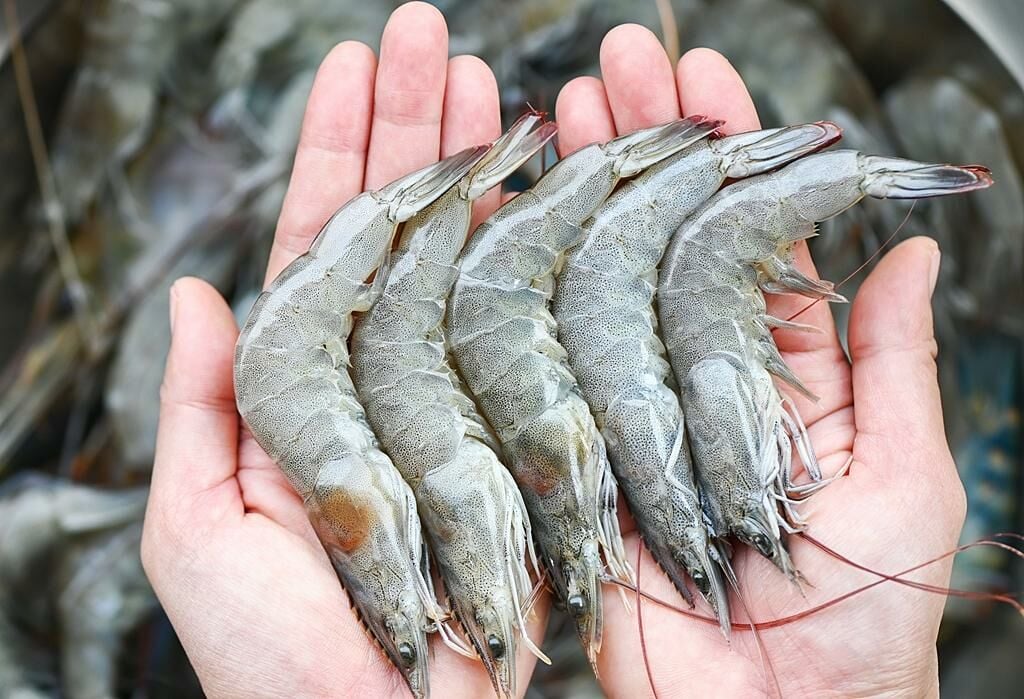Thailand’s shrimp exports forecasted to surge by 10% next year

A 10% surge in Thailand’s shrimp exports is on the horizon for the upcoming year, brought about by a minor uptick in local shrimp production and bolstered demand primarily from the United States.
Thai Shrimp Association President Ekapoj Yodpinit disclosed that shrimp production in Thailand this year mirrored the previous year’s figure of 280,000 tonnes. Meanwhile, the country’s shrimp exports for this year are estimated to stand at approximately 120,000 tonnes, priced at 50 billion baht (US$1,436,493,500).
This represents a downturn from the earlier record of 144,113 tonnes valued at 50.9 billion baht.
The fall in shrimp exports is mostly pinned on low shrimp prices and elevated production expenses, which forced some farmers to temporarily halt their shrimp farming activities. Simultaneously, shrimp farmers wrestled with other challenges including prevalent diseases in shrimp farming and unpredictable weather conditions.
Ekapoj highlighted that diseases pose the most significant risk factor, leading to a dramatic decrease in the nation’s shrimp production. He further explained that the upper southern region’s production is anticipated to contribute 33% of this year’s output, with the eastern region producing 25%, the lower southern region on the Andaman Coast constituting 20%, the lower southern region on the Gulf of Thailand contributing 10%, and the central region accounting for 12% of the total.
On the global scene, shrimp production is predicted to hit roughly 5.07 million tonnes this year, marking a 1% decline from 2022. Both China and Ecuador managed to ramp up their production rates despite the overall decline. Asian countries such as Vietnam, India, and Indonesia, however, witnessed a reduction in their shrimp production, reported Bangkok Post.
Global shrimp production
Ekapoj projected that global shrimp production would experience a 2% drop next year, while Thailand’s shrimp production is expected to reach 290,000 tonnes.
“For the upcoming year, we expect Thailand’s shrimp exports will reach around 290,000 tonnes, a 10% increase from this year, with a potential 20% increase in value due to improved price conditions compared to this year.”
Ekapoj also pointed out a potential opportunity for Thailand to boost its shrimp exports to the US in the forthcoming year as four major shrimp-producing nations, namely Ecuador, India, Indonesia, and Vietnam, are under investigation by the US over anti-dumping duty and countervailing duty. This situation may persuade US importers to source their purchases from Thailand, while the four investigated countries might diversify their exports to alternative markets such as China and Japan.
On another note, Ekapoj emphasised the Thai Shrimp Association’s continuous endeavours to uplift shrimp farming in Surat Thani province to meet the Aquaculture Stewardship Council (ASC) standards, a requisite for shrimp imports by the US. This initiative is anticipated to bolster the country’s reputation for food safety in export markets, including the US and the European Union (EU).
“Nonetheless, the association has proposed that the [Thai] government expedite negotiations with the EU to restore the generalised system of preferences for shrimp imports from Thailand. Currently, Thailand is only able to export 900 tonnes of shrimp to the EU annually, a significant decrease from the previous level of 60,000 tonnes.
“Accelerating the free trade agreement negotiations between Thailand and the EU is also seen as a strategy to enhance competitiveness.”
Furthermore, Ekapoj mentioned that the association is seeking government assistance in research and development to combat shrimp diseases such as early mortality syndrome, white faeces syndrome, white spot disease, and yellow-head virus.
Latest Thailand News
Follow The Thaiger on Google News:


























